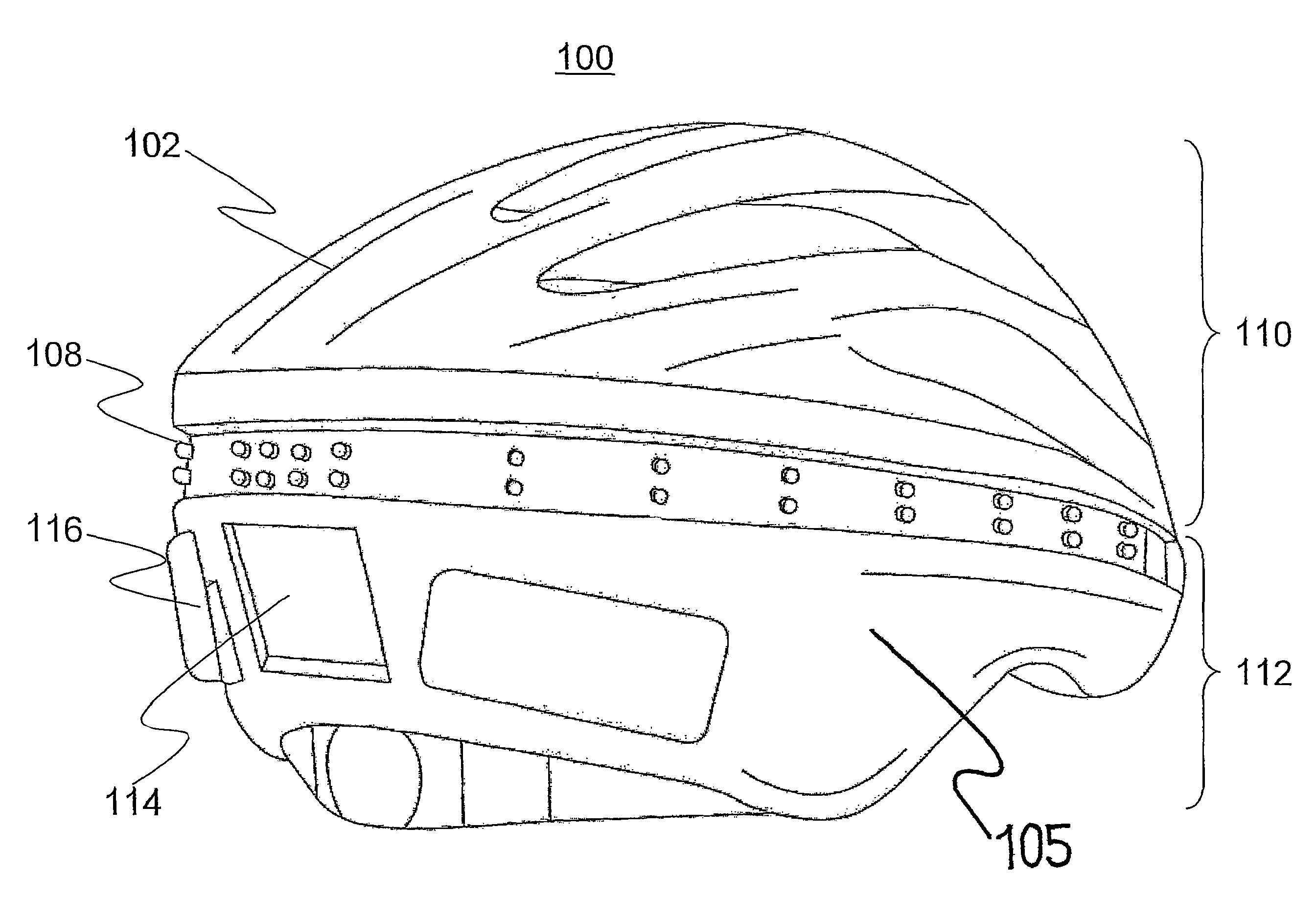Illuminated helmet with programmable lamps and proximity sensor
a proximity sensor and programmable lamp technology, applied in the field of protective helmets, can solve the problems of not being protected by the helmet structure, not being able to provide additional intelligence, not being able to contain wiring within a module, etc., and achieve the effects of reducing the risk of lamp damage, minimizing thickness, and reducing overall mass
- Summary
- Abstract
- Description
- Claims
- Application Information
AI Technical Summary
Benefits of technology
Problems solved by technology
Method used
Image
Examples
Embodiment Construction
[0040]The object of the present invention is to provide an illuminated helmet with improved design, visibility and safety. The present invention provides an illuminated helmet with a plurality of lamps positioned in at least one recess in the helmet to reduce the risk of damage to the lamps and prevent the lamps from injuring a user during an accident. It is also build with surface mount technology (“SMT”) to minimize the thickness and reducing the overall mass; the two factors necessary to maximize safety by reducing the likelihood of the components being driven through the protective foam and into the head. The illuminated helmet also provides specific recesses for the lamps and other components located in a non-impact area of the helmet to further reduce the risk of injury from the components and lamps in an accident. Furthermore, the illuminated helmet provides a proximity sensor mounted within the helmet that lacks mechanical parts and automatically activates the lamps when the...
PUM
 Login to View More
Login to View More Abstract
Description
Claims
Application Information
 Login to View More
Login to View More - R&D
- Intellectual Property
- Life Sciences
- Materials
- Tech Scout
- Unparalleled Data Quality
- Higher Quality Content
- 60% Fewer Hallucinations
Browse by: Latest US Patents, China's latest patents, Technical Efficacy Thesaurus, Application Domain, Technology Topic, Popular Technical Reports.
© 2025 PatSnap. All rights reserved.Legal|Privacy policy|Modern Slavery Act Transparency Statement|Sitemap|About US| Contact US: help@patsnap.com



